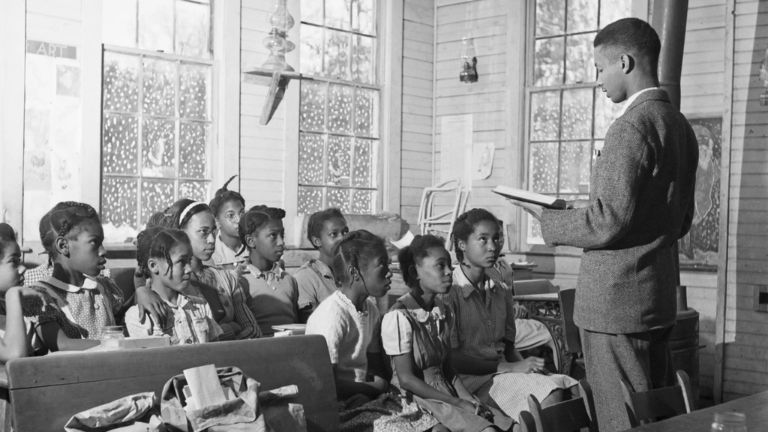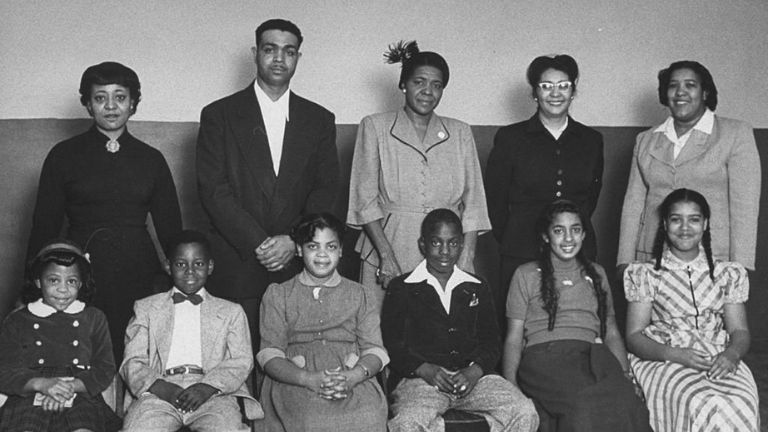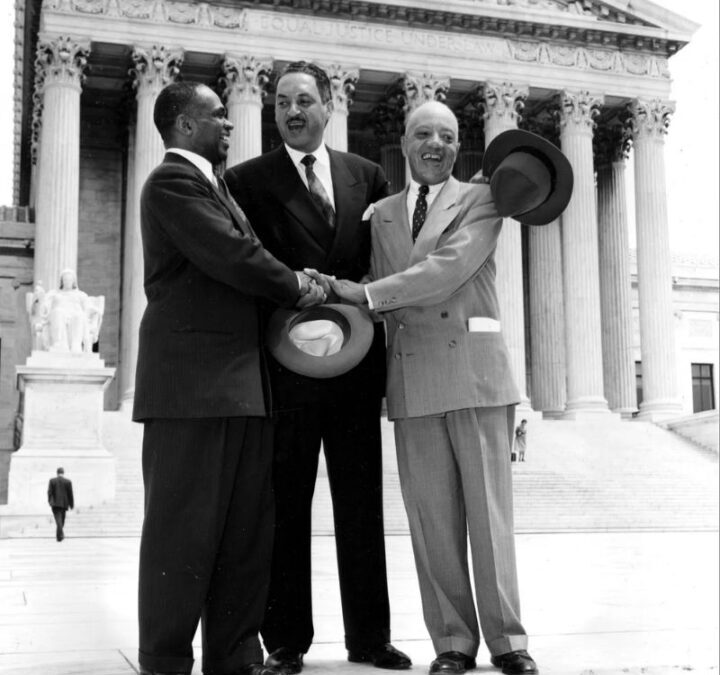Brown vs. the Board of Education
Oliver J. Brown was a key figure in the civil rights movement, even if his name isn’t as well known as some of his contemporaries. Brown’s legacy is linked to a landmark Supreme Court case that helped desegregate American schools.

Oliver J. Brown, an early life and education.
Oliver J. Brown was born on February 22, 1918 in Topeka, Kansas. He grew up in a segregated community, attending all-black schools. Brown continued his studies at Washburn University, where he earned a degree in mathematics. After graduation, he worked as a welder and minister before becoming involved in the civil rights movement. Brown’s own life experiences of segregation and discrimination motivated him to fight for change.
Brown v. Board of Education.
Brown’s most important contribution to the civil rights movement was his role in the landmark Supreme Court case Brown v. Board of Education. In 1951, Brown’s daughter Linda was denied admission to a white elementary school in Topeka, Kansas, because of her race. Brown, along with other parents, took legal action against the Topeka Board of Education. The case eventually went to the Supreme Court, where it was argued that segregation in public schools was unconstitutional. The Court ruled in favor of Brown and the other plaintiffs, declaring that « separate but equal » education was inherently unequal and a violation of the 14th Amendment. Brown v. Board of Education was a major victory for the civil rights movement and paved the way for other desegregation efforts.
The practice of school segregation had become commonplace and accepted in American society despite numerous movements in civil rights history to stop the separation of black and white society. The justification that segregation provided a « separate but equal » setting that benefited education, the truth was, was a thinly veiled attempt to deprive African-American children of the quality education everyone needs to excel in the modern world.
Now, even such a definitive statement by the Supreme Court did not end the struggle between segregationists and those who would end the practice that deprived African-American children of a quality education. In 1957, the governor of Arkansas tried to block the integration of schools in his state, and the only thing that could stop him was the intervention of federal troops sent by President Eisenhower. A similar, but much more high-profile, event occurred in Alabama, where Governor George Wallace physically prevented black students from entering the University of Alabama. It took the intervention of federal marshals to physically remove him, to ensure that the law of the land, as mandated by the Supreme Court, was enforced. And the law of the land then and forever since was that segregation was illegal in this country.

Consequences and legacy.
Despite the historic victory in Brown v. Board of Education, Oliver J. Brown continued to face discrimination and hardship. He lost his job as a welder after the case and struggled to find work for many years. However, his legacy remains a symbol of courage and determination in the fight for civil rights. In 2004, the Topeka school district renamed the elementary school that had refused Brown’s daughter admission « Brown v. Board of Education National Historic Site ». Today, Oliver J. Brown is considered an unsung hero of the civil rights movement, whose bravery and perseverance helped change the course of American history.
Honors and recognition.
Despite the discrimination and difficulties encountered after the landmark Brown v. Board of Education decision, Oliver J. Brown’s legacy has been honored in a variety of ways. In addition to renaming the elementary school that had refused his daughter admission, Brown was posthumously awarded the Presidential Citizens Medal by President Bill Clinton in 1999. The medal recognizes Brown’s role in the civil rights movement and his contribution to the advancement of civil rights in America. Brown’s legacy continues to inspire and educate people about the importance of fighting for equality and justice.
The integration of the schools was an important step in the ongoing struggle to create a truly egalitarian society and to improve the chances of black children to grow up with the same opportunities as all other children in this country. As more and more African-American children have become well-educated, the black population has been able to make a strong contribution to culture and the advancement of knowledge in all learning disciplines. What’s more, the growing educated black population brought with it the black middle class, which economically equalized society. As African-Americans began to participate in all the economic opportunities that middle-class prosperity afforded them, so did the chances for whites,
But perhaps the most important result of school integration was the opportunity it gave children of all races to learn, play and grow together. As young black and white students took classes, attended soccer games and hung out together at pep rallies, they became friends. They had the chance to simultaneously work as a team and socialize in many situations, and as this became the social norm, racism began to evaporate from the heart of young America.
As a result, modern-day youth see racism as a strange, primitive viewpoint from long ago and out of step with a current worldview. This kind of true acceptance of both whites toward blacks and blacks toward whites will go further to finally end racial separation and intolerance than any riot or demonstration or march or even Supreme Court decision ever could. And we have Oliver Brown and that small group of parents from Topeka, Kansas to thank. By doing what was best for their children, they did something wonderful for all American children now and for generations to come.
Remembering Oliver J. Brown.
Oliver J. Brown may not be a household name, but his role in the civil rights movement was pivotal. As lead plaintiff in the landmark case Brown v. Board of Education, Brown challenged segregation in public schools and helped pave the way for desegregation in America. Despite discrimination and hardship in the aftermath of the case, Brown’s legacy has been honored in a variety of ways, including renaming the elementary school that denied his daughter admission and posthumously receiving the Presidential Citizens Medal. Brown’s legacy continues to inspire and educate people about the importance of fighting for equality and justice.
See also our article: Who is Stuart Hall










